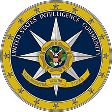FY15 Intelligence Authorization bill passes House, heads to President’s desk
 The FY15 Intelligence Authorization bill, H.R. 4681, passed the House of Representatives today by an overwhelming bipartisan vote of 325-100, and now heads to the President’s desk for signature. This is the fifth consecutive Intelligence Authorization bill passed into law since Chairman Mike Rogers and Ranking Member C.A. Dutch Ruppersberger took the helm of the House Intelligence Committee four years ago. Chairman Rogers and Ranking Member Ruppersberger praised the bill’s passage.
The FY15 Intelligence Authorization bill, H.R. 4681, passed the House of Representatives today by an overwhelming bipartisan vote of 325-100, and now heads to the President’s desk for signature. This is the fifth consecutive Intelligence Authorization bill passed into law since Chairman Mike Rogers and Ranking Member C.A. Dutch Ruppersberger took the helm of the House Intelligence Committee four years ago. Chairman Rogers and Ranking Member Ruppersberger praised the bill’s passage.
The intelligence authorization bill is one of the critical national security bills the House passes each year. It provides and allocates resources to critical national security programs, including those that detect and disrupt potential terrorist attacks against the American people. The total funding authorized by the bill is slightly above the President’s budget request, but maintains fiscal discipline.
Bill Highlights:
- Increased research and development on potentially game-changing technologies;
- New investments in modernized intelligence capabilities that will also have lower operating costs;
- Enhanced investments in military intelligence, surveillance, and reconnaissance aircraft;
- Enhanced investments to more efficiently task and operate intelligence collection assets;
- Policy and funding direction on sensitive intelligence operations;
- Funding to thwart insider threats;
- Funding to pursue new intelligence capabilities from space;
- Funding reductions to activities that are inefficient or insufficiently justified;
- Continues to emphasize the value of our space programs, and the need to decrease our reliance on Russian-made engines to carry our satellites into space;
- Makes the necessary investments into Research and Development to defend against next generation threats;
- Further improves the continuous evaluation of insider threats while safeguarding privacy and civil liberties;
- Enables better intelligence and information sharing to prevent foreign fighter flows, especially into and out of Syria;
- Enables cutting edge Defense Intelligence Agency technology.
- Further refines the Department of Defense Human Intelligence capabilities while supporting community-wide Human Intelligence efforts to better understand the enemies’ plans and intentions.
- Establishes increased accountability measures for our most sensitive programs.
Chairman Rogers said, “We rightly demand that our intelligence agencies provide policy makers with the best and most timely information possible on the threats we face. We ask them to track terrorists wherever they train, plan, and fundraise. We ask them to stop devastating cyber attacks that steal American jobs. We ask them to track nuclear and missile threats. And we demand that they get it right – every time. This bill ensures that the dedicated men and women of our Intelligence Community have the funding, and authorities and support they need to meet their mission and to keep us safe.”
Ranking Member Ruppersberger said, “The Intelligence Authorization Act is the single most effective oversight tool we have. It ensures that our intelligence agencies spend money only on programs Congress is informed of, approves, and can continuously oversee. At the same time, it ensures that our intelligence professionals have what they need to keep us and our allies safe. This is a strong, bipartisan bill that I am proud to support. I look forward to the President signing this bill into law.”







